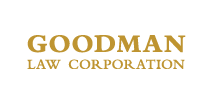Too many hats: Lawyer precluded from representing plaintiff where she is the also plaintiff’s mother and the defendants ex-wife
In Jane CL Doe v. Charles Kwangsoo Yim, No. B299856 (Ct. App. October 5, 2020), the 2nd District Court of Appeal applied the advocate-witness rule to a case in which the plaintiff’s attorney was both the plaintiff’s mother and the defendant’s ex-wife for seventeen years. Despite the plaintiff’s consent to the representation, the trial court disqualified the lawyer and the Court of Appeal affirmed.
Facts of the Doe v. Yim Case
A young woman, Jane Doe, filed a lawsuit alleging that her mother’s husband, Charles Kwangsoo Yim, sexually abused her while she was a minor (from age 9 to 13). (Her true name is not disclosed in the lawsuit because she was a minor at the time of the incidents at issue.) The lawsuit also alleged that Yim held himself out as Doe’s stepfather, giving rise to a fiduciary relationship, and the sexual abuse breached a fiduciary duty to Doe. Importantly, Jane Doe’s mother Tiffanie Lee was her attorney in the filing of this civil lawsuit. Lee was married to Yim for seventeen years.
Within 2 months after the lawsuit was filed, Yim filed a motion to disqualify Lee as counsel for Doe. He argued that Lee was a crucial witness because of her relationship with Doe and Yim, so her representation would violate the Advocate-Witness rule. This rule states that: “A lawyer shall not act as an advocate in a trial in which the lawyer is likely to be a witness unless: [¶] (1) the lawyer’s testimony relates to an uncontested issue or matter; [¶] (2) the lawyer’s testimony relates to the nature and value of legal services rendered in the case; or [¶] (3) the lawyer has obtained informed written consent from the client”. (California Rule of Professional Conduct 3.7(a)). In addition, courts retain discretion to “protect the trier of fact from being misled or the opposing party from being prejudiced.” (Id., com. 3, asterisk omitted, citing Lyle v. Superior Court (1981) 122 Cal.App.3d 470.)
Doe opposed the motion, arguing that she had provided informed written consent to Lee’s representation even if she was called as a witness. Also, she argued that Lee’s representation during pretrial activities would not violate the rule because the rule only expressly mentions trial. Lee proposed to withdraw as Doe’s attorney once the case reached trial.
The trial court granted Yim’s motion. The trial court found that although Doe provided informed consent, the informed consent exception to the Advocate-Witness rule did not apply. Allowing Lee to serve as counsel would prejudice Yim because Lee had percipient knowledge about the case as a mother of plaintiff and the then-wife of Defendant, it was a “near certainty” that Lee would be a witness at trial, and it would confuse the jury as to Lee’s role in the case. Lee appealed the decision, again arguing that the Advocate-Witness rule does not apply to pretrial stages of litigation, including deposition, that the trial court had not made sufficient findings of fact to justify Lee’s disqualification, and that no evidence supported the trial court’s assertion that Lee had confidential information that she could use against Yim.
The Advocate-Witness Rule Warrants Disqualification of a Lawyer who is a Material Witness
The Court of Appeal affirmed the disqualification order. The Court of Appeal found that Lee could not represent Doe in her lawsuit because it was reasonable to conclude that Lee would be a key witness at trial, and her advocate-witness role could prejudice Yim or mislead the jury. The Court explained
the purpose of the Advocate-Witness rule, observing that “one purpose of the advocate-witness rule is to prevent [jury] confusion regarding whether an advocate-witness’s statement is to be considered proof or argument” and that there is a risk of the jury linking an attorney’s persuasiveness as counsel to his or her credibility as a witness. The Court of Appeal acknowledged that the rule does not explicitly mention pretrial but found that trial could encompass pretrial evidentiary hearings. The Court of Appeal found that Lee’s personal knowledge as a material witness would be prejudicial to Defendant during the discovery process.
Regarding Lee’s possession of confidential information obtained during her marriage to Defendant, the Court noted that attorneys have a duty to uphold the integrity of the judicial process, which includes a duty to safeguard confidential information arising from privileged or fiduciary relationships. Spouses, for example, have a privilege to keep confidential private communications between spouses during marriage. Here, Lee and Yim were married for seventeen years. Undoubtedly, Lee had information protected by the spousal privilege that she had a duty to safeguard. The undisputed fact of her marriage to the Defendant was substantial evidence supporting the trial court’s finding that Lee had confidential information that she could use against Yim during the litigation as an advocate for the Plaintiff.
The Takeaway
The Advocate-Witness rule prevents lawyers acting as both representatives of parties and material during litigation, with some narrow exceptions. This case illustrates the dangerous prospect of a lawyer representing a family member in litigation where the lawyer has personal knowledge of important events.



